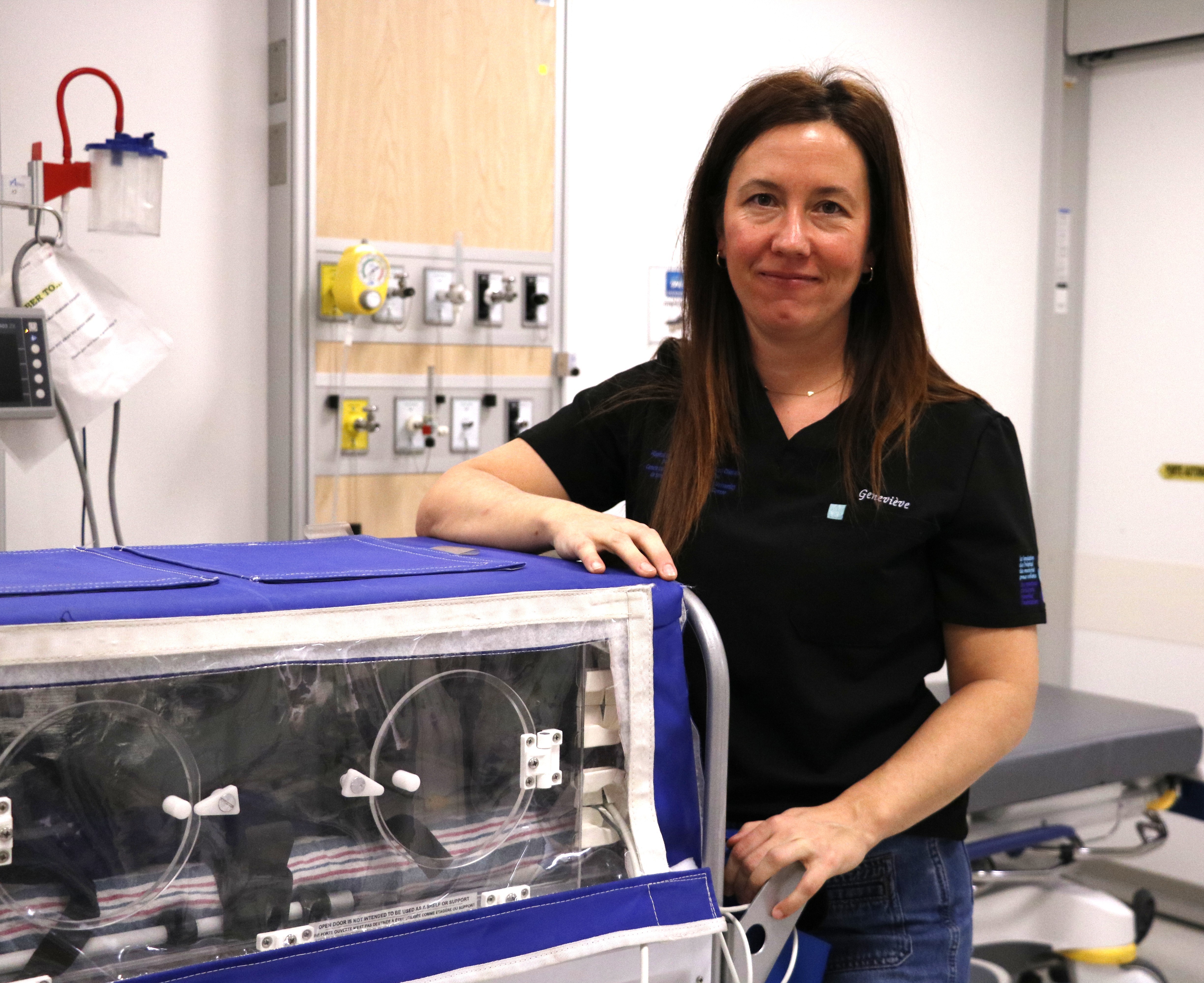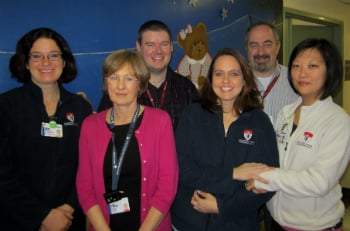
Celebrating Critical Care Transport Nurses at the MCH
18 February 2026
Rise in respiratory infections and measles outbreak: important infection prevention measures at the Montreal Children’s Hospital.
Read moreWelcome to the Montreal Children's Hospital

10 February 2014
Teamwork is the best way to describe why the Montreal Children’s Hospital Pediatric Intensive Care Unit (PICU) continues to be successful at treating our most critically ill and injured patients.
Teamwork is the best way to describe why the Montreal Children’s Hospital Pediatric Intensive Care Unit (PICU) continues to be successful at treating our most critically ill and injured patients. This multidisciplinary team includes everyone from social workers to pediatric critical care specialists, but their teamwork goes beyond staff members. The PICU also includes its patients and families as key players in their clinical network, which is why they formed the PICU Family Transition group. “We want to make sure our transition to the Glen is as smooth as possible for our families, so getting them involved made perfect sense,” says Dr. Patricia Fontela, PICU staff member and co-chair of the transition group.
In October 2013, the transition group began meeting regularly to raise questions and identify priorities surrounding the move to the Glen site. The outcome of these brainstorming sessions led to the creation of smaller working groups, with each one focusing on a different issue and led by an individual with expertise in the specific topic. The core group continues to meet every two weeks and each working group gives an update on their progress. One of the issues being examined is the change from shared rooms in the current PICU to private rooms at the Glen. “We currently work in a very open environment where everyone is very accessible, so we want to make sure we keep the same atmosphere in our new space even though the rooms will be private,” says Dr. Fontela.
The ultimate goal of each working group is to get families involved by surveying them about what they like about the current system and what they would like to change at the Glen. The PICU deals with two different types of families, those of acute patients who are in the PICU for shorter, but very stressful periods of time, and those of chronic patients, who need assistance over longer periods of time. Both sets of families have different needs and every family has a different perspective. Admittedly, the group needs to learn more about their new space before getting families involved, but once their work flow is better defined they hope to run simulations with the selected families to evaluate and assess the new space. “This whole transition process is about improving our work flow and I’m certain we’re just going to get stronger and stronger as a result,” says Dr. Fontela.